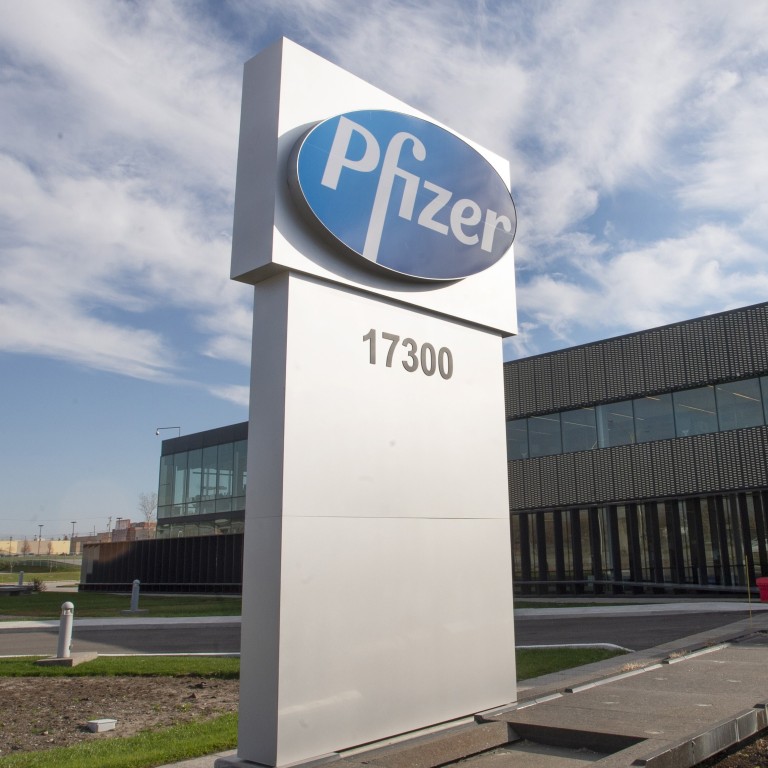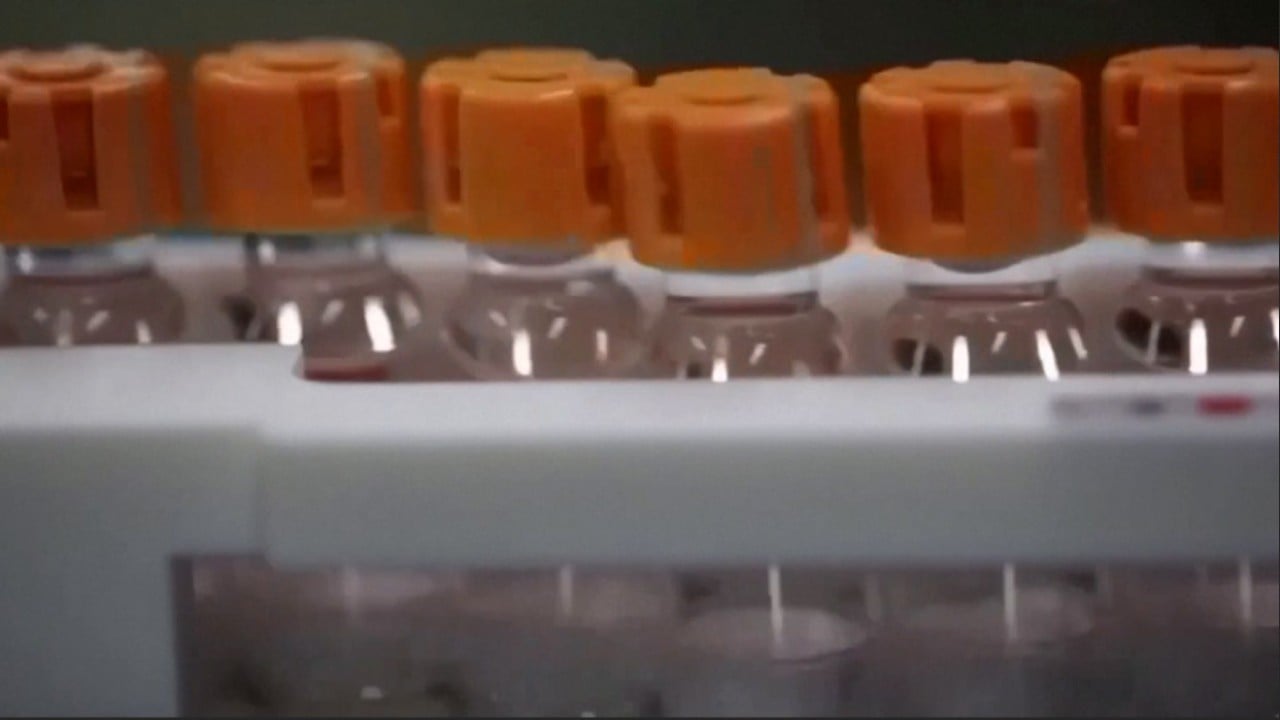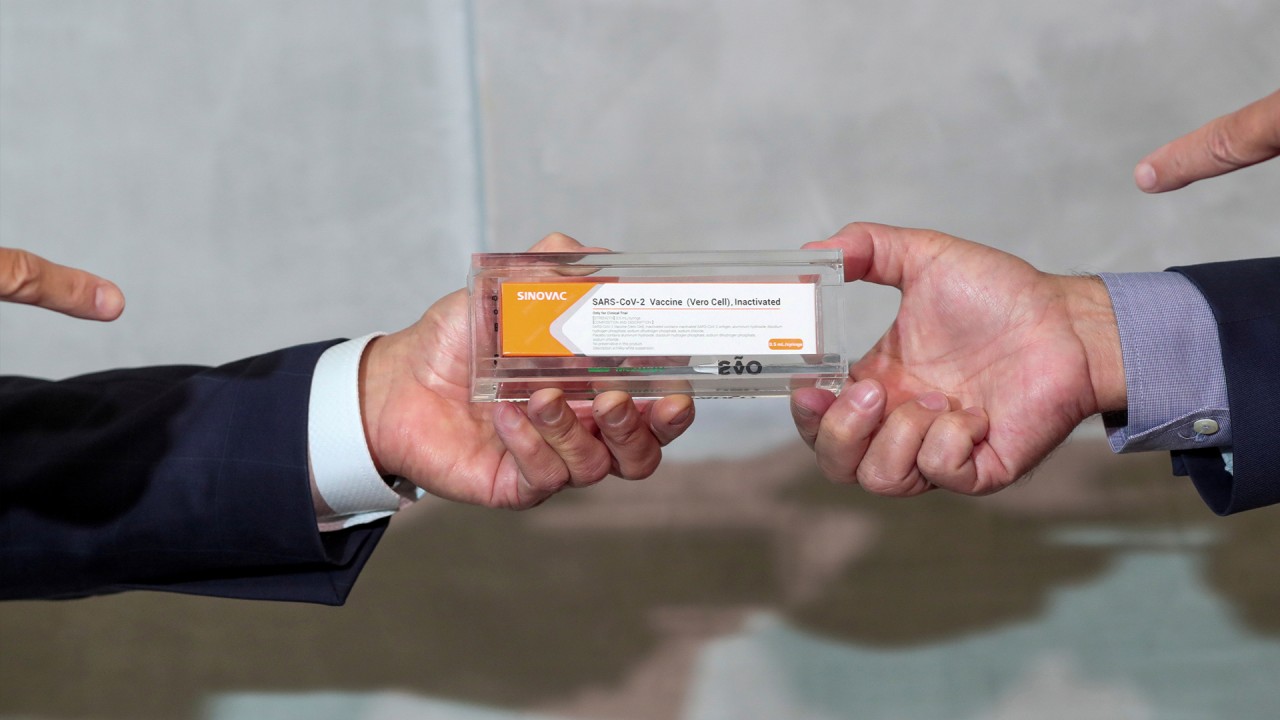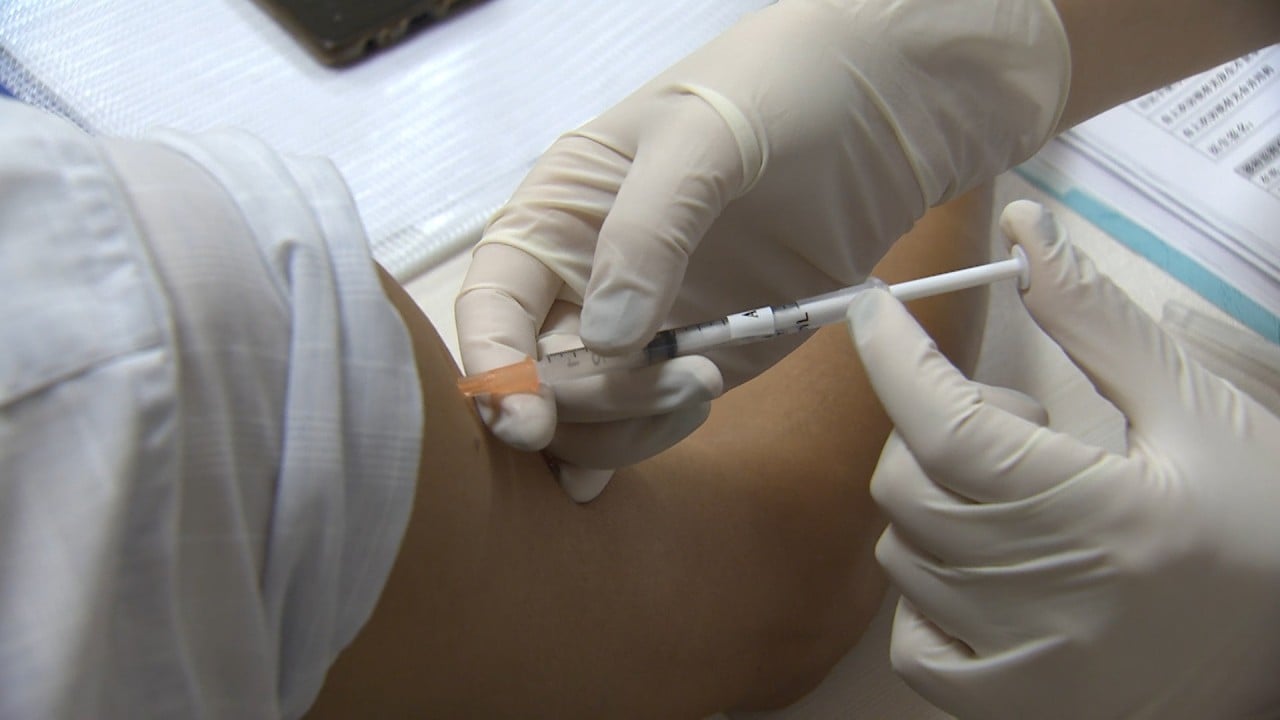
Coronavirus: vaccine hopes rise on promising Pfizer-BioNTech trial results
- American firm says its candidate proved 90 per cent effective in preventing symptomatic infection
- Chinese company Sinovac has setback with report of adverse event in its Brazil trial
The details remain unclear, but the company and some media reports in Brazil said the death was thought to be unrelated to the vaccine.
Nevertheless, normal procedure is for an independent committee to look into the matter before making a conclusion.

02:30
Pfizer coronavirus vaccine more than 90 per cent effective, US drug maker says
Scientists said the Pfizer announcement was significant because it showed that its strategy – which targets the coronavirus’s spike protein – had a good chance of working.
But was also too soon to say if the first generation of vaccines was good enough to stop transmission of the pathogen.
“For it to come back at 90 per cent efficacy is really striking and it’s far more than what I was anticipating,” said immunologist Kylie Quinn, a vice-chancellor’s research fellow at RMIT University in Australia, noting that this was an interim analysis, and so an early look rather than the complete study.
The interim data is based on 94 infections among volunteers who received the candidate vaccine and a placebo. The company said it would assess the data again when there were a total of 164 infections to determine if it met application standards for US Food and Drug Administration (FDA) permits.
It also said it would apply to American regulators for an emergency-use authorisation in the third week of November, once the required safety milestone was achieved.
Quinn said it was important to keep in mind that the efficacy could change as the study continued. The FDA mandates an efficacy of at least 50 per cent.
Also, the data provided by the company has yet to be peer reviewed, and it is unclear how long the vaccine can protect people and whether it can protect people from serious illness.
BioNTech CEO Ugur Sahin told Reuters that “we should be more optimistic that the immunisation effect can last for at least a year”, but that is yet to be supported by peer-reviewed data.

02:23
Brazilian state of Sao Paulo builds plant to make China’s coronavirus vaccine candidate, CoronaVac
The announcement offers some hope to the United States, which has passed the bleak milestone of 10 million coronavirus cases, with the most recent 1 million happening in just 10 days.
Top American respiratory scientist Anthony Fauci said the interim result validated the strategy of targeting the spike protein, as well as the new technology of mRNA vaccines, which have yet to be commercialised.
Most of the front-runners in the vaccine race target the spike protein and if one succeeds, the chances of the others doing so are high.
Richard Hatchett, CEO of the Coalition for Epidemic Preparedness Innovations, agreed.
“We believe these interim results also increase the probability of success of other Covid-19 candidate vaccines which use a similar approach [pre-fusion spike as their immunogen], including all of the vaccines in the CEPI portfolio,” Hatchett said.

02:38
Chinese Covid-19 vaccine developer Fosun Pharma optimistic about progress on mRNA jab
The Pfizer-BioNTech vaccine is one of a number using mRNA technology, a new approach. If it succeeds, it would be a boost to vaccine research because it provides a quick path to development.
But it has a downside. The Pfizer vaccines have to be stored in minus 70 degrees Celsius (-94 Fahrenheit) to remain stable for a long time, while traditional vaccines are stored in 2-8 degrees.
Linda Selvey, a public health physician and an infectious diseases epidemiologist at the University of Queensland, cautioned that it was not time for celebration yet.
“This announcement is very encouraging, however, it will not, on its own, mean that we will be able to resume ‘business as usual’ any time soon,” Selvey said.
Pfizer said 1.3 billion doses would be produced by 2021, enough to vaccinate at most 650 million people. But that is far from enough to meet global demand.
“This points to the importance of having several vaccines available, in order to ensure that everyone around the world will be protected,” Selvey said.
Coronavirus: 10 million Americans infected as Europe’s hospitals buckle under strain
Medical specialists say that in the initial phase, vaccines are likely to be administered to high-risk or most vulnerable groups. This suggests that mask, hand hygiene and social distancing rules are likely to stay in place for most people for a long while.
Around the world, more than 40 vaccines are in clinical trials and nine in the final stage of the process. But there have been bumps in the road.
One of the leading vaccine candidates, an inactivated one developed by Chinese firm Sinovac, suffered a setback as Anvisa, Brazil’s health regulator, suspended the trial, citing “a severe adverse event”.
But Sinovac said on Tuesday that it “had confidence in the safety of the vaccine” and that it would communicate with Brazilian authorities on the matter.
It comes amid a fierce debate in Brazil about whether to include a Chinese vaccine in its national immunisation programme.
No halt to trials have been announced in Indonesia and Turkey, where the vaccine candidate is also being tested.
It is not uncommon for late-stage trials to be suspended but it is the first time a Chinese vaccine candidate has faced such a situation.
US President-elect Joe Biden announces coronavirus task force line-up
Trials of vaccine candidates by Oxford University and pharmaceutical giant AstraZeneca, and another one by Johnson & Johnson, were halted in recent months after an unexplained illness in participants. Both have resumed.
Buoyed by the good news, Pfizer’s share price rise 15 per cent after the announcement on Monday.
The milestone achievement of BioNTech caused the share price of its partner in China, Fosun Pharmaceutical, to rally 14.2 per cent on Tuesday even though the vaccine it co-developed with BioNTech is a different candidate.
The Chinese firm agreed in March to pay up to US$135 million for the exclusive right to commercialise the vaccine in mainland China, Taiwan, Hong Kong and Macau.
Additional reporting by Eduardo Baptista


